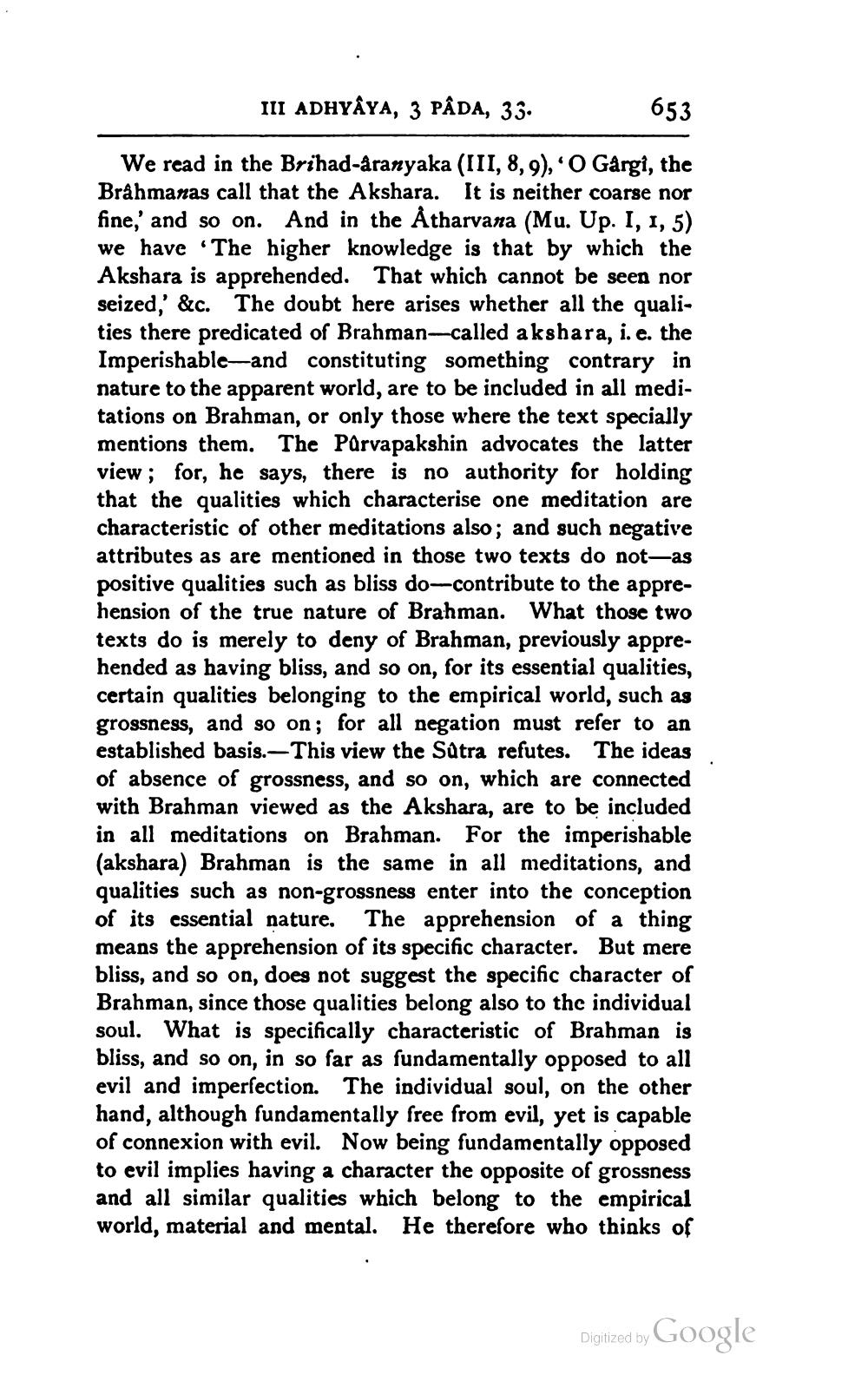________________
III ADHYAYA, 3 PÂDA, 33.
653
We read in the Brihad-âranyaka (III, 8, 9), 'O Gârgi, the Brahmanas call that the Akshara. It is neither coarse nor fine,' and so on. And in the Atharvana (Mu. Up. I, 1, 5) we have 'The higher knowledge is that by which the Akshara is apprehended. That which cannot be seen nor seized,' &c. The doubt here arises whether all the qualities there predicated of Brahman-called akshara, i. e. the Imperishable and constituting something contrary in nature to the apparent world, are to be included in all meditations on Brahman, or only those where the text specially mentions them. The Purvapakshin advocates the latter view; for, he says, there is no authority for holding that the qualities which characterise one meditation are characteristic of other meditations also; and such negative attributes as are mentioned in those two texts do not-as positive qualities such as bliss do-contribute to the apprehension of the true nature of Brahman. What those two texts do is merely to deny of Brahman, previously apprehended as having bliss, and so on, for its essential qualities, certain qualities belonging to the empirical world, such as grossness, and so on; for all negation must refer to an established basis.-This view the Sûtra refutes. The ideas of absence of grossness, and so on, which are connected with Brahman viewed as the Akshara, are to be included in all meditations on Brahman. For the imperishable (akshara) Brahman is the same in all meditations, and qualities such as non-grossness enter into the conception of its essential nature. The apprehension of a thing means the apprehension of its specific character. But mere bliss, and so on, does not suggest the specific character of Brahman, since those qualities belong also to the individual soul. What is specifically characteristic of Brahman is bliss, and so on, in so far as fundamentally opposed to all evil and imperfection. The individual soul, on the other hand, although fundamentally free from evil, yet is capable of connexion with evil. Now being fundamentally opposed to evil implies having a character the opposite of grossness and all similar qualities which belong to the empirical world, material and mental. He therefore who thinks of
Digitized by Google




